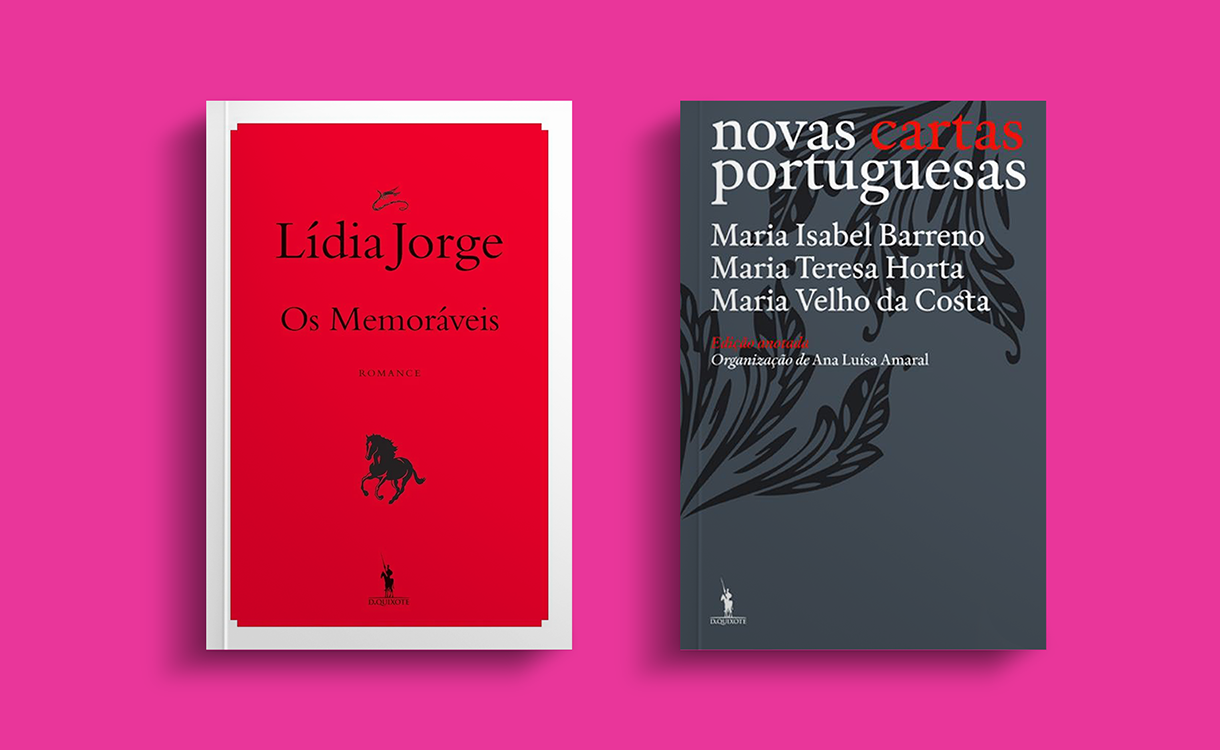Blog
17 of April of 2024
Livraria Lello suggests

In April we celebrate 50 years of Freedom, a historic milestone for Portugal and the world. An opportunity to reflect on the current situation and also to pay tribute to the heroes and heroines who fought for change.
Our booksellers suggest "Os Memoráveis" by the author of the month Lídia Jorge and "The Three Marias-New Portuguese Letters" by Maria Isabel Barreno, Maria Velho da Costa and Maria Teresa Horta.
Os Memoráveis, Lídia Jorge
In 2004, Ana Maria Machado, a Portuguese reporter in Washington, was invited to make a documentary about the 1974 Revolution, considered by the American ambassador in Lisbon at the time to be a rare moment in history. Having accepted the job, she returns, hires two former colleagues, and the three young people visit and interview various actors and witnesses to the coup d'état, revisiting the myths of the Revolution. It's a journey that allows us to be surprised by the effect of the passage of time not only on these "heroes", but also on Portuguese society, both in its greatness and its miseries.
The Three Marias-New Portuguese Letters, Maria Isabel Barreno, Maria Velho da Costa and Maria Teresa Horta
"By rewriting the well-known 17th century letters of the Portuguese nun, Novas Cartas Portuguesas is a libel against the prevailing ideology of the pre-25 April period (denouncing the colonial war, the judicial system, emigration, violence, the situation of women), with an unusual originality and topicality, from a literary and social point of view. This is proven by the fact that it can be read today in the light of the most recent feminist theories (or those emerging from Feminist Studies, such as queer theory), since it resists cataloging by dismantling the boundaries between the narrative, poetic and epistolary genres, pushing the limits to points of fusion."
Our booksellers suggest "Os Memoráveis" by the author of the month Lídia Jorge and "The Three Marias-New Portuguese Letters" by Maria Isabel Barreno, Maria Velho da Costa and Maria Teresa Horta.
Os Memoráveis, Lídia Jorge
In 2004, Ana Maria Machado, a Portuguese reporter in Washington, was invited to make a documentary about the 1974 Revolution, considered by the American ambassador in Lisbon at the time to be a rare moment in history. Having accepted the job, she returns, hires two former colleagues, and the three young people visit and interview various actors and witnesses to the coup d'état, revisiting the myths of the Revolution. It's a journey that allows us to be surprised by the effect of the passage of time not only on these "heroes", but also on Portuguese society, both in its greatness and its miseries.
The Three Marias-New Portuguese Letters, Maria Isabel Barreno, Maria Velho da Costa and Maria Teresa Horta
"By rewriting the well-known 17th century letters of the Portuguese nun, Novas Cartas Portuguesas is a libel against the prevailing ideology of the pre-25 April period (denouncing the colonial war, the judicial system, emigration, violence, the situation of women), with an unusual originality and topicality, from a literary and social point of view. This is proven by the fact that it can be read today in the light of the most recent feminist theories (or those emerging from Feminist Studies, such as queer theory), since it resists cataloging by dismantling the boundaries between the narrative, poetic and epistolary genres, pushing the limits to points of fusion."



.png)